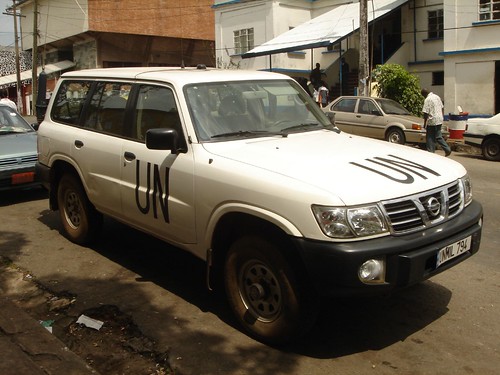
There are so many things that could be said about this article. But I will focus on the main points. That of the non-profit world existing as a profit making industry. And yes, some will argue in countries that are void of sustainable economies, any industry is good. But we must ask who this industry really benefits and who it does not. If our foreign aid dollars are going into sushi and SUVs instead of material aid for those in need - what good is that doing. How much do those in the non-profit, international sector depend on poverty and crisis for their own livelihood? Thinking of some of the recent posts on Haiti, what policies are the World Bank, IMF and United States enforcing that create the poverty expats get paid to try to alleviate. On the Haiti note, my friend who recently returned from 6 months there noticed a stark contrast in the living situation of herself and the World Bank folks who worked there that would be reflective of what this article is about. Sorry, this isn't clear. Read the article, ask yourself some questions, see where it gets you.
In Postwar Liberia, Paradise Amid the Poverty
Feelings Mixed as Aid Workers Live WellBy Craig Timberg
Washington Post Foreign Service
Friday, May 30, 2008; A01MONROVIA, Liberia -- The second sushi bar to open in ragged postwar Liberia did not settle for having its chefs wear simple T-shirts, or for serving $25 worth of sliced fish on plain white plates.
Instead, the Barracuda Bar -- the new favorite hangout of ambassadors, U.N. officials and legions of aid workers whose shiny white SUVs jam the parking lot most nights -- opted to dress its staff in Japanese-style robes and red bandannas. Bigger orders of salmon and yellowtail arrived not on flatware but on little wooden sushi boats. Lobsters languished sullenly in a tank near the door, waving their antennae as customers walked by.
As this impoverished country climbs its way back from 13 years of civil war with the tiniest of steps, a boom is underway in the industries that cater to the rarified tastes of thousands of mostly European and U.S. expatriates who have come to help since peace arrived in 2003. The increasingly visible splendors available to this relatively wealthy group have left some Liberians wondering whether the foreigners are here to serve the nation or themselves.
"They drive the best of car, go to the best of entertainment center," said Allen Weedor, 42, the Liberian manager of a modest bar in a poor neighborhood on the outskirts of town. "You can't really see what they've done." Full Story

No comments:
Post a Comment